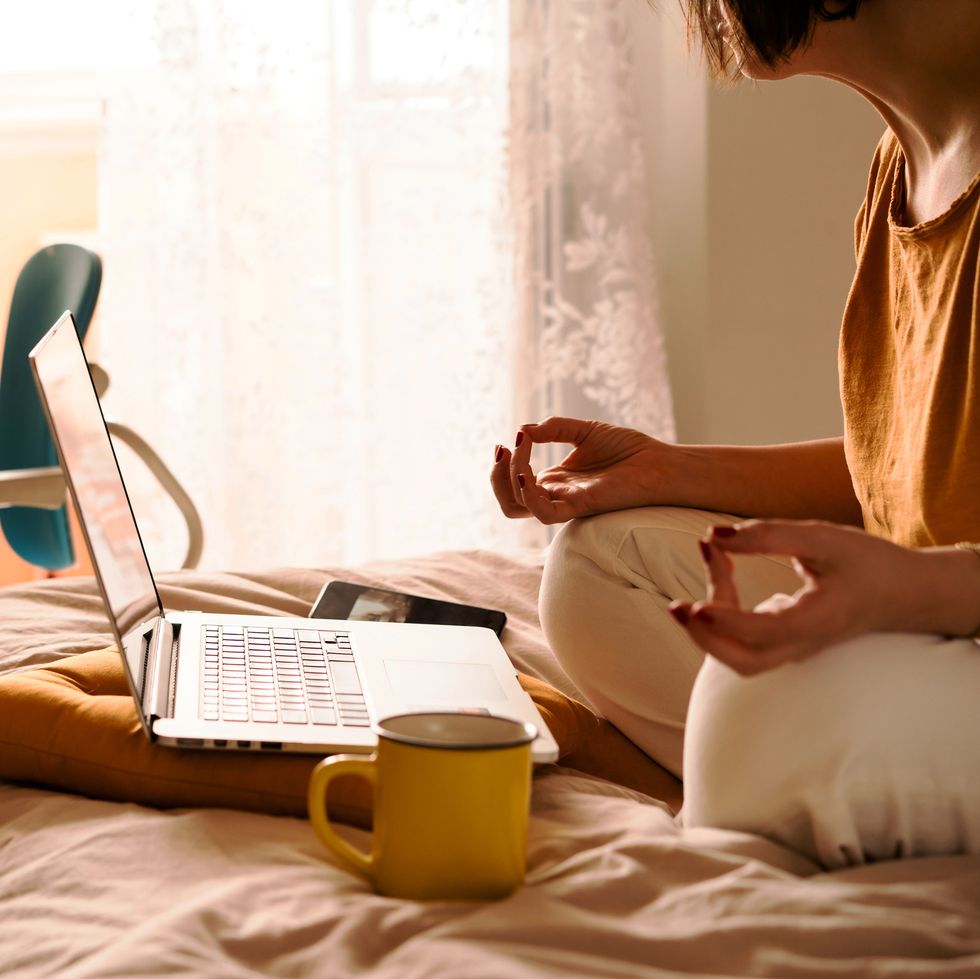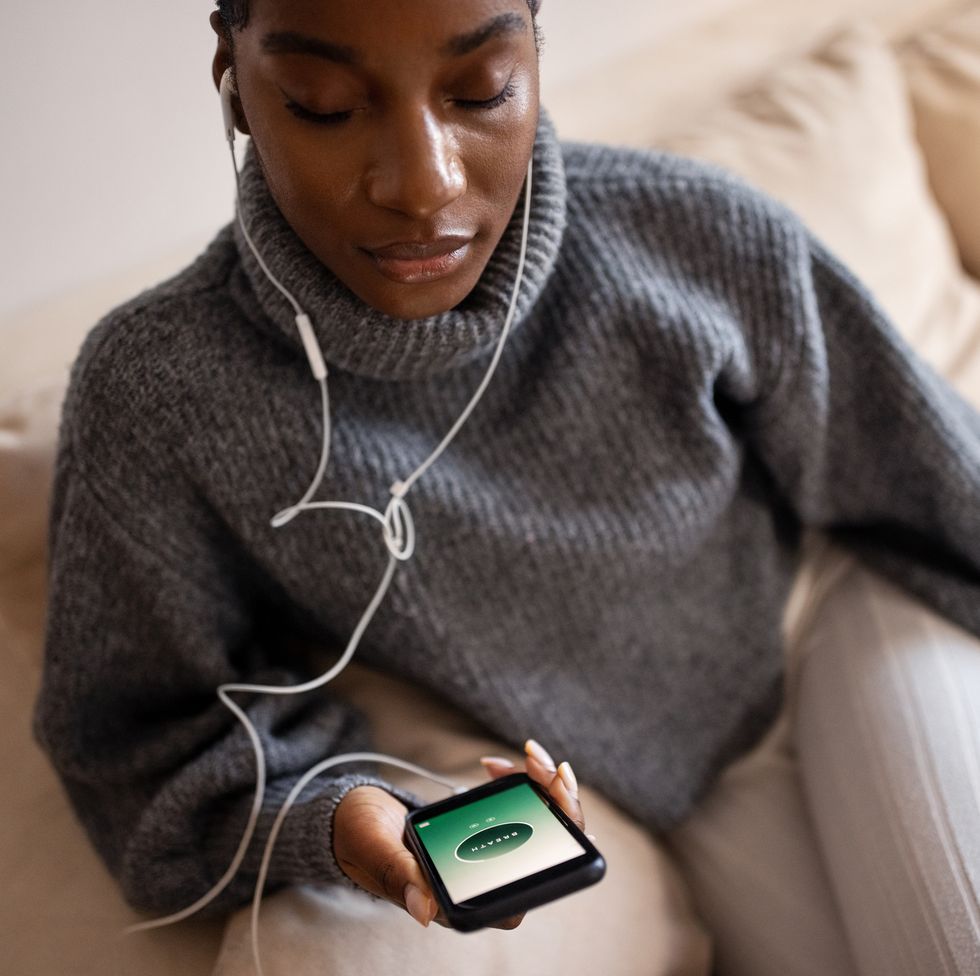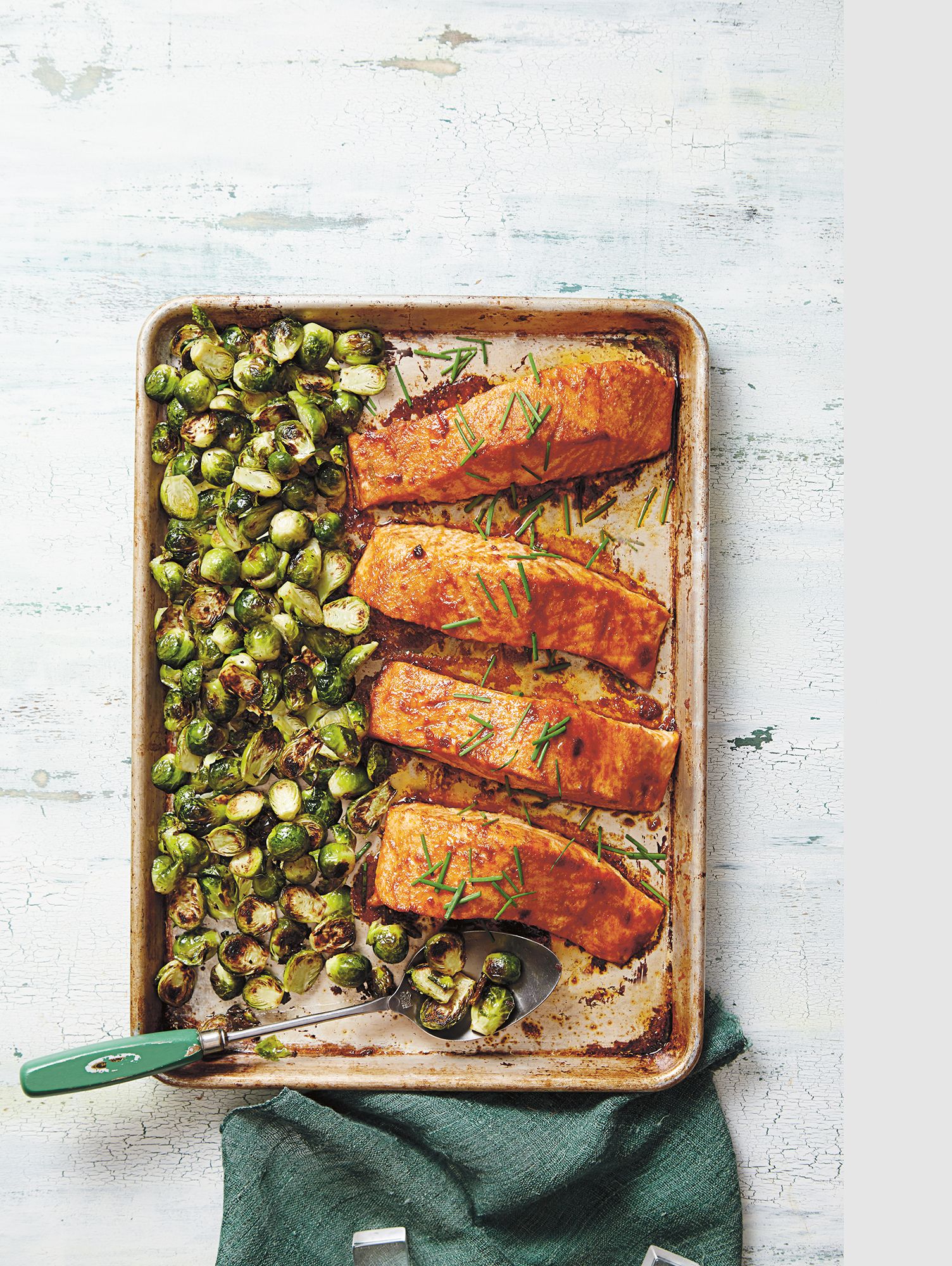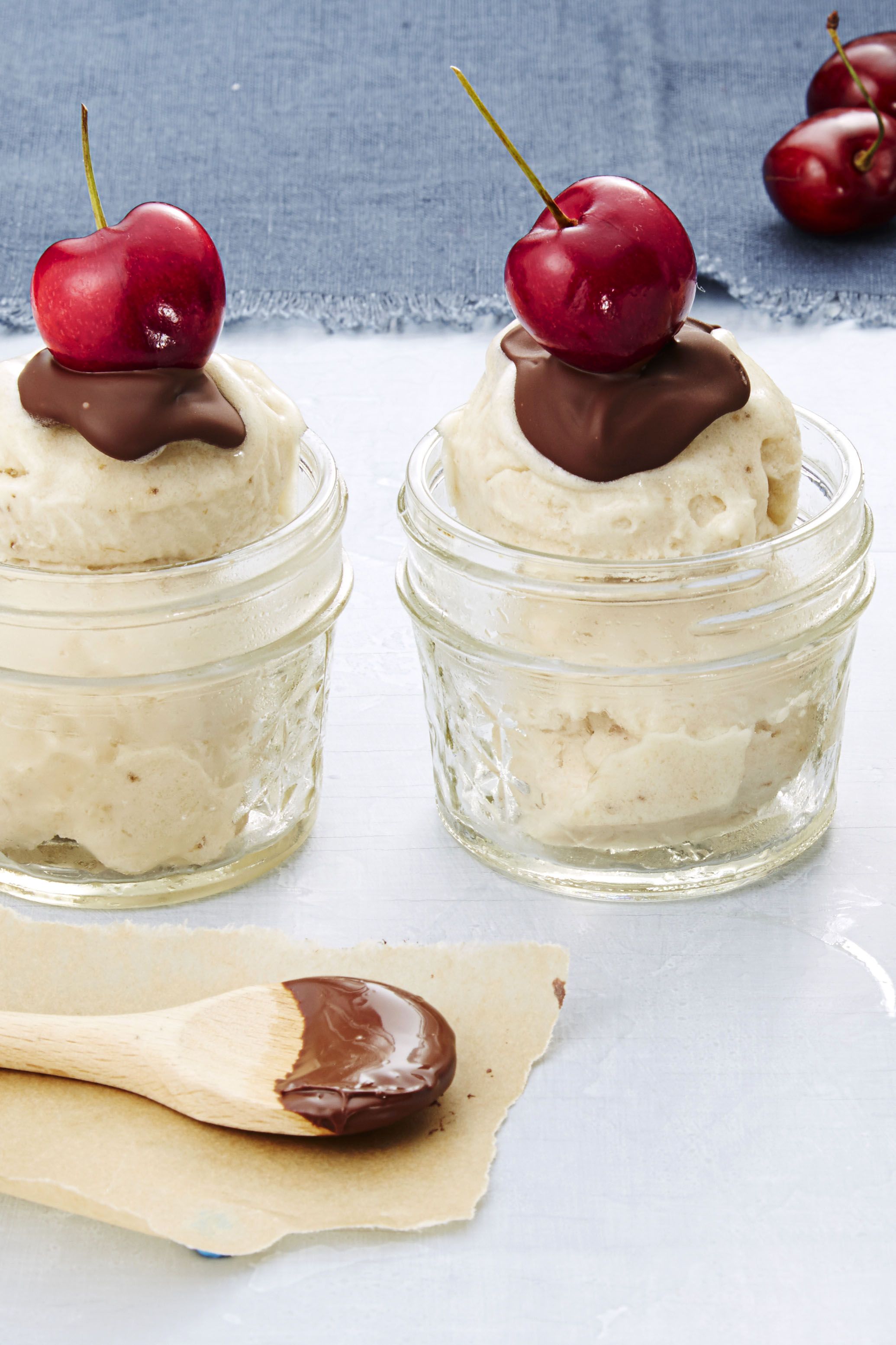Check in! How did your sleep hygiene improve this week? Were you able to reduce screen time before heading to bed? Maybe you went to bed 30 minutes earlier a few nights? Good sleep hygiene takes time and practice, especially if your current sleeping patterns are far from ideal.
This week’s focus on meditation and stress management should help with improving your sleep and all the other habits we’ve working on thus far. Once stress takes over your emotions, it’s hard to shake it — quickly, that is. When you have a billion and a half things on your plate and only a few hours in the day to finish them, escaping panic mode seems nearly impossible. The worst part is people hardly ever take the time to breathe during these draining moments, which in the end only make it worse.
If you find yourself worrying about everything – your job, money, kids, relationship – all the time, you might just find that a little mindfulness – a meditation practice, to be precise – is exactly what you need to calm your mind and regain perspective.
Science says that meditation can have a powerful effect on chilling out your stress response. A study by Spanish researchers found that when you reduce worry and repetitive negative thoughts through meditation, it may cut the risk of clinical depression. What’s more, a study from Japanese researchers found that group meditation for eight weeks helped reduce anxiety and depression in its participants, particularly when it was combined with actively practicing self-compassion.
So it makes sense why so many experts recommend it. Feeling hesitant still? We’re here to break down meditating for anxiety for you.
How does meditation reduce anxiety?
“Meditation teaches us how to feel comfortable with discomfort,” says Meryl Arnett, a meditation teacher in Atlanta, Georgia, and host of the podcast The Mindful Minute. “When you meditate, it’s important you let yourself feel what you feel and think what you think. The more you do this, the more you feel a sense of control, and you get less triggered by stress.”
Meditation is equally great at curbing the physical problems anxiety can cause. “Practicing mindfulness has been shown to enhance both our mental and physical well-being,” says Jonathan Fisher, MD, FACC, a cardiologist at Novant Health Heart and Vascular Institute in Huntersville, South Carolina, and a certified mindfulness teacher. “Heart benefits have been reported as a result of reduced stress, including lower blood pressure, and improved ability to quit smoking and stop overeating, which are two important risk factors for cardiovascular disease.”
Can meditation make anxiety worse?
Initially, it may do just that. British researchers reported that over 25% of more than 1,200 study subjects said they felt more anxiety when they meditated. If you do too, don’t worry –it actually means your practice is working.
“When someone begins a meditation practice, their level of awareness increases,” explains Dr. Fisher. “They may become aware of thoughts, feelings, and sensations that were beneath their conscious awareness. Some of these might be frightening or disturbing, including memories or emotional pain that have been bottled up. This phenomenon is known as ‘backdraft’, because when the subconscious mind is exposed to the initial oxygen of awareness, a tiny spark may become an emotional or mental ‘fire’. Simply being aware this can happen is an important step. Someone with a past history of trauma or unresolved emotions might want to seek help from an expert prior to jumping into the deep end of meditation.” This is important – consult with your therapist if you have one, so you will be prepared if you want to try to practice.
How do you handle this added anxiety, if it happens to you? Stay with the feeling – don’t fight it. “You’re going to feel the full extent of the anxiety you carry,” stresses Arnett. “This is because we tend to take that feeling and shove it in the back of our brains, so we don’t have to think about it. So when you let your mind be still, your mind says, ‘It’s time for me to face this’. It’s very important to understand that this feeling does not stay with you if you stay with your practice.”
How to get started?
The point of meditation isn’t to go into a trance. It’s to simply focus on your breathing, clear your head of distracting thoughts and free your mind to think whatever it’s going to think. “There is no ‘right way’ to meditate,” says Dr. Fisher. “Find a quiet, solitary space, where you are unlikely to be distracted.”
Dr. Fisher says, the traditional position for meditation is to sit on a cushion or pillow on the floor with your legs crossed in front of you, your feet flat, your spine upright, your shoulders relaxed and your hands resting on your thighs or in your lap. However, you may prefer lying down, standing, or walking during your practice. Meditating at one set time a day – like as soon as you wake up or right before bed – establishes a nice routine that will help you make progress.
Simply breathe in slowly and exhale. Focus on your breath as you allow your mind to become still. “Start slow – just 1 to 5 minutes daily – and work your way up gradually to 10 to 20 minutes daily, as you feel comfortable,” Dr. Fisher says. Don’t have any expectations as to what you should experience. Just see how your mind flows, and notice how you feel.
A meditation teacher can be a great resource in terms of helping you understand your experience, and guide you through the early stages of the process, too. You can also use a meditation app like Headspace or Calm.
How to know that meditation is really helping your anxiety:
“At the end of your practice, grab a notebook and write freely about whatever happened,” says Arnett. “Write down how you felt, and the thoughts you had. Do this every time you meditate, and you’ll soon see patterns emerging in your thinking. You’ll see what is really making you anxious, and you’ll be aware enough to finally say, ‘I don’t have to do that anymore.’” Then you can eliminate your stressors in a clear and practical way. Meditation is really about listening to yourself. As you turn down the noise in your mind, you’ll find clarity – and clarity eliminates anxiety. So get still, follow your inner voice and prepare to feel better.
Tips for success:
As we mentioned earlier, it isn’t easy to make time for meditation and your mental health, but it’s vital. Here are some ways to do it.
Make it obvious.
- Leave an essential oil roller near your bed to remind you to unwind and start your meditation.
- Set a reminder on your phone to practice meditation first thing when you wake up or right after brushing your teeth at night.
Make it attractive.
- Change into comfortable clothes and set a calm environment.
- Designate an area in your home or office that you won’t be interrupted.
- Find a friend or group to mediate with in person or online.
Make it easy.
- Start by meditating for one minute a day and increase by one minute daily.
- Plan some time before you pick up your kids from school or right after work before you get home to meditate.
Make it satisfying.
- Download an app or meditation class with different types of mediation and different targets (for example meditation for anxiety or meditation for better focus).
How to habit stack meditation:
- Before you have your morning coffee or tea, or before you scroll social media, meditate first.
- Take a few deep breaths and a short meditation in bed at the end of the day before heading to sleep.
Recipes:
These meals are an excellent addition to this mental health journey.
← Back to Challenge / Go to Day 7 →
Nutrition Lab Deputy Director
Stefani (she/her) is a registered dietitian, a NASM-certified personal trainer and the deputy director of the Good Housekeeping Institute Nutrition Lab, where she handles all nutrition-related content, testing and evaluation. She holds a bachelor’s degree in nutritional sciences from Pennsylvania State University and a master’s degree in clinical nutrition from NYU. She is also Good Housekeeping’s on-staff fitness and exercise expert. Stefani is dedicated to providing readers with evidence-based content to encourage informed food choices and healthy living. She is an avid CrossFitter and a passionate home cook who loves spending time with her big fit Greek family.






